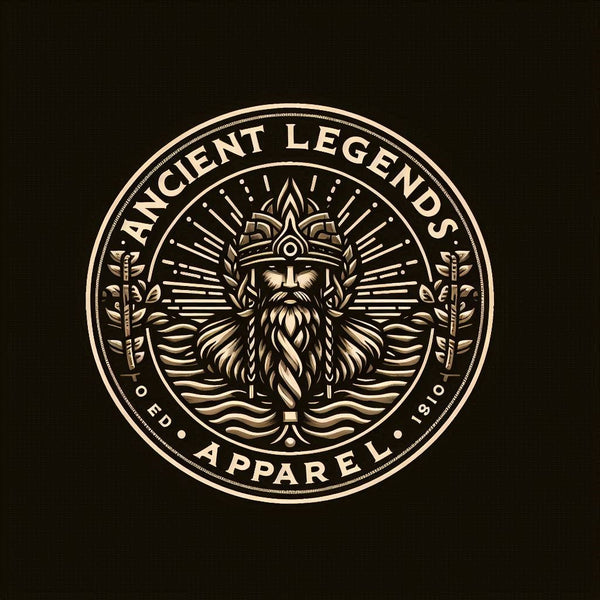Symbolism Behind Roman Legends
Karl FShare
INTRODUCTION
When generations pass down stories filled with symbolic heroes, vibrant landscapes, and moral tales, they foster a connection to our collective human past. These narratives charm and inspire, reflecting the values, ingenuity, and fantasies of their respective societies. Among the rich historical tapestry of humanity's tales, the tales woven by the Romans stand out in their ability to navigate the spheres of the sacred, the heroic, and the mundane, all in service of the preservation of cultural identity and societal ethics. The Roman legends are thus cryptic keys given to us by the ancients, offering insights into the complexities of the symbolism that lays at the heart of their civilization.
ORIGIN AND CULTURAL CONTEXT
Like its opulent amphitheaters and grand forums, the mythology of Ancient Rome was borne out of the Roman people's ambition for greatness and an unending pursuit to understand their place in the universe. The seeds of Roman legends find their roots in the culturally diverse Italian peninsula, blending elements from native Italic myth, the pervasive Greek pantheon, stoicism and heroism borrowed from the Etruscians, and sprinkled with flavors of wider Eurasian wisdom. These tales, though distinct, share in their depiction of a world teeming with divine drama, fearsome beasts, ambitious warriors, and capricious gods whose whims and rivalries shaped the destinies of mortals.
THE LEGEND OR STORY
Let us consider one such tale, the legend of Romulus and Remus, twin demigods who laid the foundation of Rome. Born to the god Mars and a Vestal Virgin, the twins were abandoned on the Tiber river and found by a she-wolf who nurtured them until a shepherd adopted them. Once attaining manhood, they desired to establish their own city. However, a dispute over the city's location led Romulus to kill his brother, after which he founded the city, which he named Rome after himself. This tale serves as a foundation myth, legitimizing Rome’s imperial legacy, and emphasizing the Romans' direct lineage from the gods and their relationship with Mars, the god of war.
INTERPRETATIONS AND SYMBOLISM
Symbols are potent currency in legends; they carry the logic, the lessons, and the essence of a culture. Within Romulus and Remus' story, abundant symbolism can be unearthed. The she-wolf - the 'lupa,' is both a symbol of unbridled wildness and unmatched nurturing compassion. Its dual nature echoes the Roman's understanding of survival - brutal, yet, caring. Romulus slaying Remus mythologically translates ambition's cost; it is brutish and requires sacrifice, underlining a culture that esteemed power, dominance, and victory above fraternity and peace. By being born of Mars, the Romans established themselves as the descendants of warfare, hence glorifying the martial virtues indicative of their expansive empire.
COMPARISONS IN OTHER CULTURES
Parallel stories seep through cultures worldwide, echoing universally acknowledged tropes. The Biblical tale of Cain and Abel presents brothers whose conflict ends in fratricide, much like Romulus and Remus. Ireland's legendary tale of the divine hero Lugh mirrors the Roman theme of a god-sired hero. Yet, a stark departure is that Lugh, unlike Romulus, does not secure his reign through fratricide, symbolizing a cultural premium on kinship, and less on ruthless ambition. This comparative analysis delineates where the Romans built their novel cultural stance.
MODERN REFERENCES AND POP CULTURE
Modern culture, literature, and arts still draw from Roman legends' spring. The emblem of the wolf feeding Romulus and Remus is Rome’s emblem, a timeless tribute to its mythical origins. The term 'Romulus’ resonates in Marvel’s character "Romulus" who embodies the dream and ambition of empire-building, asserting the same brutality reflected in the Roman foundation tale. The fratricidal narrative has been explored in movies like "The Godfather" series, echoing the ancient theme of obtaining power through fraternal bloodletting.
LEGACY AND LASTING MYSTERIES
Roman legends, a wellspring of moral dilemmas, human ambitions, and divine caprices, continue to envelop our consciousness subtly and converge into complex cultural, philosophical, and ethical inquiries. The elusive origins of these narratives continue to fascinate and mystify scholars, who grapple with understanding the ancient mind's complexities. The tale of Romulus and Remus stirs the question - Can the foundation of a civilization be built on a fratricide? Is ambition's cost too high? The answers remain as veiled as the legends themselves, underscoring that the human search for meaning in our past is an unending journey.
